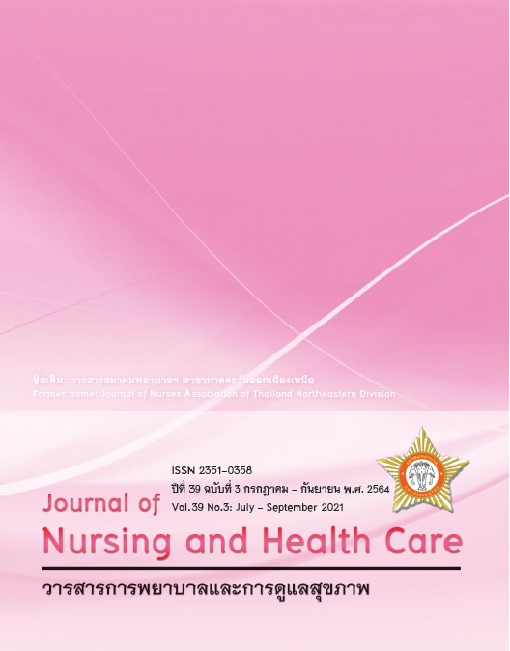การให้คำปรึกษาด้านสุขภาพจิตเพื่อเสริมสร้างศักยภาพตามแนวคิดสตรีนิยม : การประยุกต์ใช้
คำสำคัญ:
การเสริมสร้างศักยภาพ, ปัญหาสุขภาพจิต, การให้คำปรึกษา, แนวคิดสตรีนิยมบทคัดย่อ
แนวคิดสตรีนิยมเกิดมาจากการมีแนวคิดของความหลากหลายทางเพศ ความไม่ยุติธรรม และความเหลื่อมล้ำทางสังคม เชื้อชาติและวัฒนธรรมที่มีความซับซ้อนและหลากหลายและจิตสำนึกของคนในสังคมต่อผู้หญิงเป็นไปในเชิงกดขี่ข่มเหงโดยมีผู้ชายเป็นผู้กระทำเป็นส่วนใหญ่ อีกทั้งเชื่อว่าเพศเป็นเรื่องที่สังคมวัฒนธรรมสร้างขึ้น โดยผู้หญิงเป็นกลุ่มที่ถูกสร้างขึ้นให้สอดคล้องกับความคิดทั่วไปที่ว่าผู้หญิงเป็นเพศที่อ่อนแอ ปัจจุบันมีแนวคิดการให้คำปรึกษาตามแนวคิดสตรีนิยมนั้นได้ถูกนำมาใช้อย่างแพร่หลายมากขึ้น ซึ่งเราสามารถมองเห็นปัญหาสุขภาพจิตซึ่งเป็นผลมาจากกรอบเรื่องเพศ ภาวะและเพศวิถีที่กล่าวมาข้างต้นได้อย่างชัดเจน ไม่ว่าจะเป็นปัญหาเรื่องภาวะวิกฤติทางอารมณ์ ภาวะซึมเศร้า ความรุนแรงในครอบครัว การท้องไม่พร้อมที่นำไปสู่การทำแท้งที่ไม่ปลอดภัยและการเพิ่มจำนวนของแม่วัยรุ่นและแม่เลี้ยงเดี่ยว เป็นต้น ปัญหาสุขภาพจิตถือได้ว่าเป็นหนึ่งในปัญหาที่จะส่งผลกระทบทั้งทางตรงและทางอ้อมต่อสุขภาพกาย จิตใจ อารมณ์และสังคมของบุคคล และส่งผลต่อประสิทธิภาพการทำงาน ดังนั้นการให้คำปรึกษาและช่วยเหลือที่ถูกวิธีจะช่วยทำให้บุคคลมีสุขภาพจิตที่ดี โดยมุ่งเน้นการจัดการกับปัญหาและหาแนวทางที่เหมาะสมในการดูแลตนเองเพื่อรับมือกับปัญหาสุขภาพจิตที่เกิดขึ้น รวมทั้งช่วยเสริมสร้างความสุขในการทำงานร่วมกับผู้อื่นและสามารถใช้ศักยภาพของตนเองในการทำงานอย่างมีประสิทธิภาพและประสิทธิผล ซึ่งการให้คำปรึกษาตามเพื่อเสริมสร้างศักยภาพพลังอำนาจในตนเองตามแนวคิดสตรีนิยมเป็นกระบวนการช่วยเหลือให้บุคคลได้สำรวจตนเอง ให้เกิดความเข้าใจตนเอง และการลงมือปฏิบัติอย่างเหมาะสม โดยเป็นการใช้อำนาจร่วมระหว่างผู้ให้การปรึกษากับผู้รับบริการ เพื่อฟื้นฟูอำนาจภายในของเขา โดยเชื่อว่าผู้ประสบทุกข์มีสติปัญญาและศักยภาพที่จะแก้ปัญหาของตนเองได้ ซึ่งความทุกข์ของผู้ที่ประสบปัญหาเป็นความทุกข์ที่เชื่อมโยงอย่างใกล้ชิดกับโครงสร้างทางสังคม ศาสนา เศรษฐกิจ ชนชั้น การเมือง วัฒนธรรม ความเชื่อ สื่อ และเทคโนโลยีและระบบการศึกษา เพื่อการแก้ปัญหา การปรับตัว การปรับเปลี่ยนพฤติกรรม รวมถึงการบริหารจัดการชีวิตในปัจจุบันที่เหมาะสม
Downloads
เอกสารอ้างอิง
2. World Health Organization. Gender and women’s mental health.[Database on the internet]. 2016 [cited 2020 November 16]. Available from http://www.who.int/mental_health/prevention/genderwomen/en.
3. World Health Organization. Depression and other common mental disorders: Global health estimates. Geneva: WHO DocumentProductionServices; 2017. .[Database on the internet]. 2017 [cited 2020 November 18]. Available from http://www.who.int/mental_health/prevention/genderwomen/en.
4. Ministry of Public Health. Department of Mental Health. Framework for the development of mental health and Strategic Plan, Department of Mental Health during the National Economic and Social Development Plan, Vol. 12 (2017-2021). Nonthaburi: La-Mum; 2015.
5. Scott J, Craig S.Clinical Mental Health Counseling Elements of Effective Practice . CA.Sage Publishing; 2016.
6. Brown LS. Feminist therapy. Washington, DC: American Psychological Association ; 2010.
7. Enns CZ. Feminist theories and feminist psychotherapies: Origins, themes, and diversity (2nd ed.). New York, NY; 2004.
8. Evans KM, Kincade EA, Seem SR. Introduction to feminist therapy: Strategies for social and individual change. Los Angeles, CA: Sage; 2011.
9. Chandra SP, Satyanarayana AV. Gender disadvantage and common mental disorders in women. International Review of Psychiatry 2010; 22, 513-524. https://DOI:10.3109/09540261.2010.516427
10. Khuenkaew A. Path to change Spirituality-based gender and justice and learning from the heart.Bangkok:Women's Foundation; 2012.
11. Chant S. Women, girls and world poverty: Empowerment, equality or essentialism? International Development Planning Review,2016; 38(1), 1–25. doi:10.3828/idpr.2016.1.
12. Brown LS. Feminist therapy as a path to friendship with women. Women and Therapy 2013 ;36(1–2), 11–22. doi:10.1080/02703149.2012.720556.
13. Bruns CM. Feminism and feminist therapy across generations. Women and Therapy 2011; 34(1–2), 19–37. doi:10.1080/02703149.2011.532436.
14. Crawford M, Unger R. Women and gender: A feminist psychology (4th ed.). New York, NY: McGraw-Hill; 2004.
15. Thongchinda M. Mental health status. of the elderly in Muang District Narathiwat Province. Chonburi: Burapha University; 2009.
16. Ritthirong A, Prasartkul P, Chulert P. Situation of the mental health of Thai people: a reflection on society. Nakhon Pathom: Institute for Population and Social Research Mahidol University; 2010.
17. Surakan A, Arin N. Mental Health Care: Community Participation. Journal of Srinakharinwirot University (Science and Technology) 2014; 6(12), 176-184.
18. Evans K. M, Kincade EA, Seem SR. Introduction to feminist therapy: Strategies for social and individual change. Los Angeles, CA: Sage;2011.
19. Lovell K. Girls are equal too: Education, body politics, and the making of teenage feminism. Gender Issues 2016; 33(2), 71–95. doi:10.1007/s12147-016-9155-8.
20. Clonan-Roy K, Jacos CE, Nakkula MJ. Towards a model of positive youth development specific to girls of color: Perspectives on development, resilience, and empowerment. Gender Issues 2016; 33(2), 96–121. doi:10.1007/s12147-016-9156-7.
21. Otting TL, Prosek EA. Integrating feminist therapy and expressive arts with adolescent clients. Journal of Creativity in Mental Health 2016; 11(1), 78–89. doi:10.1080/15401 383.2015.1019167
22. Croft A, Schmader T, Block K, Baron AS. The second shift reflected in the second generation: Do parents’ gender roles at home predict children’s aspirations? Psychological Science 2014; 25(7), 1418–1428. doi:10.1177/0956797614533968.
23. Crowder R. Mindfulness based feminist therapy: The intermingling edges of selfcompassion and social justice. Journal of Religion and Spirituality in Social Work: Social Thought 2016; 35(1–2), 24–40. doi:10.1080/15426432.2015.1080605.
24. Díaz-Lázaro CM, Verdinelli S, Cohen BB. Empowerment feminist therapy with Latina immigrants: Honoring the complexity and socio-cultural contexts of clients’ lives. Women and Therapy 2012; 35(1–2), 80–92. doi:10.1080/02703149.2012.634730.
25. Díaz-Lázaro CM, Verdinelli S, Cohen BB. Empowerment feminist therapy with Latina immigrants: Honoring the complexity and socio-cultural contexts of clients’ lives. Women and Therapy 2012; 35(1–2), 80–92. doi:10.1080/02703149.2012.634730.
26. East JF, Roll SJ. Women, poverty, and trauma: An empowerment practice approach. Social Work 2015; 60(4), 279–286. doi:10.1093/sw/swv030.
27. Yakushko, O., & Morgan-Consoli, M. L. (2014). Gendered stories of adaptation and resistance: A feminist multiple case study of immigrant women. International Journal for the Advancement of Counselling, 36(1), 70–83. doi:10.1007/s10447-013-9191-y.



